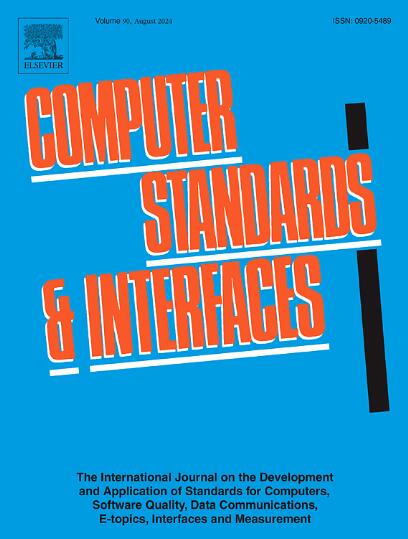LHSC-SGC: A lightweight hybrid signcryption scheme for smart grid communications in heterogeneous cryptographic public-key systems
IF 3.1
2区 计算机科学
Q1 COMPUTER SCIENCE, HARDWARE & ARCHITECTURE
引用次数: 0
Abstract
For smart grid communications (SGC), ensuring the transmission security of power consumption data is crucial to prevent unauthorized access and achieve the undeniability (unforgeability) of the data. In this context, signcryption is particularly important for SGC because it combines signature and encryption in a scheme to provide both unforgeability and confidentiality for data transmission while reducing computational complexity. Nowadays, based on different cryptographic public-key systems (CPKSs), many signcryption schemes have been proposed, but they are applied to a single CPKS. When an original CPKS is upgraded to another new CPKS, all associated cryptographic mechanisms must be rewritten to ensure that all users (i.e., original, upgraded and new users) can operate all functionalities normally in such heterogeneous CPKSs. However, the existing signcryption schemes lack the heterogeneously compatible property that makes them unsuitable for heterogeneous CPKSs. In this paper, we propose the first lightweight hybrid signcryption scheme for SGC in heterogeneous CPKSs, named as the LHSC-SGC scheme. Security theorems are formally proven that the LHSC-SGC scheme possesses both unforgeability and confidentiality for data transmission. When compared to the existing lightweight signcryption schemes, the LHSC-SGC scheme has better performance and possesses heterogeneously compatible property. By performance simulation experiences, the LHSC-SGC scheme is well-suitable for SGC with IoT devices (i.e., smart meters).
LHSC-SGC:一种用于异构加密公钥系统中智能电网通信的轻量级混合签名加密方案
对于智能电网通信(SGC)来说,确保功耗数据的传输安全是防止未经授权访问和实现数据不可否认(不可伪造)的关键。在这种情况下,签名加密对SGC尤为重要,因为它在方案中结合了签名和加密,为数据传输提供了不可伪造性和机密性,同时降低了计算复杂性。目前,基于不同的加密公钥系统(CPKS),提出了许多签名加密方案,但它们都适用于单个CPKS。当一个原始CPKS升级到另一个新的CPKS时,必须重写所有相关的加密机制,以确保所有用户(即原始用户、升级用户和新用户)可以在这种异构CPKS中正常操作所有功能。然而,现有的签名加密方案缺乏异构兼容的特性,使得它们不适合异构cpks。本文提出了异构cpks中SGC的第一个轻量级混合签名加密方案,称为LHSC-SGC方案。对安全性定理进行了形式化证明,证明了LHSC-SGC方案具有数据传输的不可伪造性和保密性。与现有的轻量级签名加密方案相比,LHSC-SGC方案具有更好的性能和异构兼容特性。通过性能仿真经验,LHSC-SGC方案非常适合物联网设备(即智能电表)的SGC。
本文章由计算机程序翻译,如有差异,请以英文原文为准。
求助全文
约1分钟内获得全文
求助全文
来源期刊

Computer Standards & Interfaces
工程技术-计算机:软件工程
CiteScore
11.90
自引率
16.00%
发文量
67
审稿时长
6 months
期刊介绍:
The quality of software, well-defined interfaces (hardware and software), the process of digitalisation, and accepted standards in these fields are essential for building and exploiting complex computing, communication, multimedia and measuring systems. Standards can simplify the design and construction of individual hardware and software components and help to ensure satisfactory interworking.
Computer Standards & Interfaces is an international journal dealing specifically with these topics.
The journal
• Provides information about activities and progress on the definition of computer standards, software quality, interfaces and methods, at national, European and international levels
• Publishes critical comments on standards and standards activities
• Disseminates user''s experiences and case studies in the application and exploitation of established or emerging standards, interfaces and methods
• Offers a forum for discussion on actual projects, standards, interfaces and methods by recognised experts
• Stimulates relevant research by providing a specialised refereed medium.
 求助内容:
求助内容: 应助结果提醒方式:
应助结果提醒方式:


